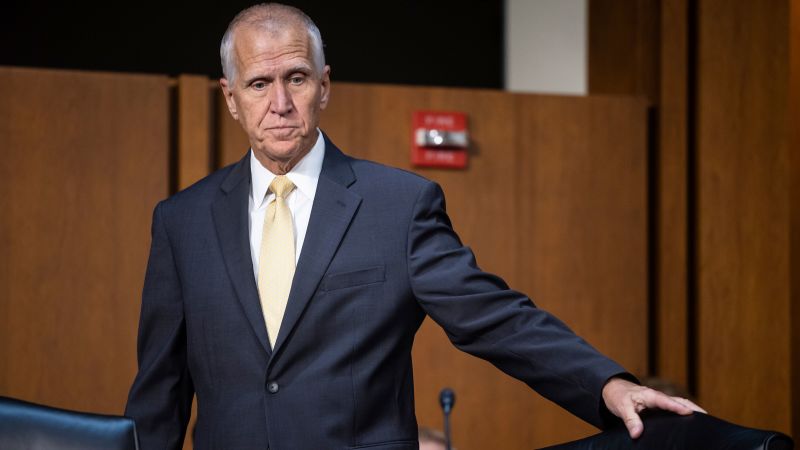Potential Cost for Homeowners from Trump's Energy Star Conflict

In a significant shift of federal policy, former President Donald Trump, both as a private citizen and during his term, vocally opposed various government regulations on household appliances and plumbing fixtures, asserting they diminished product effectiveness and inflated costs. Upon his return to the White House, these complaints materialized into concrete executive actions. On April 9, Trump issued an executive order mandating that specific federal agencies integrate "sunset provisions" into a broad array of energy production regulations, notably those pertaining to appliances. This was followed by a memorandum on May 9, titled "Rescission of Useless Water Pressure Standards." Subsequently, on May 12, the Department of Energy (DOE) declared its intent to abolish or modify 47 federal regulations, which it claimed were "driving up costs and lowering quality of life for the American people."
Many of these contested rules fall under the Energy Policy and Conservation Act (EPCA), a foundational law enacted in 1975 that establishes mandatory energy-efficiency and water-conservation standards for domestic appliances and plumbing fixtures. EPCA ensures that all covered products meet a baseline level of performance, providing consumers with essential information, such as the ubiquitous yellow Energy Guide stickers that detail annual energy usage and cost. According to Andrew deLaski of the Appliance Standards Awareness Project, EPCA offers a critical layer of consumer protection, preventing a "buyer beware" scenario where less-efficient products could flood an unregulated market, leading to unexpectedly higher utility bills.
Concurrently, the Environmental Protection Agency (EPA) announced plans to dismantle the Energy Star program. Established in 1992 as a public-private partnership, Energy Star is a voluntary initiative jointly managed and funded by the DOE, allowing manufacturers to label products like appliances, electronics, and HVAC equipment based on energy efficiency and cost savings. This recognizable blue label serves as a vital comparison-shopping tool for consumers and businesses. The EPA estimates that Energy Star is recognized by 90% of households and, over 33 years, has resulted in five trillion kilowatt-hours of electricity saved, a reduction of four billion metric tons in greenhouse gas emissions, and $500 billion in utility cost savings, with every dollar spent on the program yielding nearly $350 in energy cost savings.
Trump's deregulation efforts have elicited a varied response from different sectors. Consumer protection organizations, environmental groups, and some state governments have expressed strong resistance, while deregulation proponents and critics of government overreach have offered support. A national survey by Consumer Reports in March indicated overwhelming public support, with 87% of respondents favoring energy-efficient home appliance standards, and nearly a third motivated to purchase more efficient appliances by the prospect of lower energy bills. Consumer Reports, along with the nonprofit Alliance to Save Energy, has urged the preservation of Energy Star, arguing that dismantling these programs would increase costs for American households and contradict the White House's stated goals of energy dominance.
The Association of Home Appliance Manufacturers (AHAM), representing over 150 manufacturers, has historically supported efficiency regulations but recently pushed back against the Biden administration's updates to EPCA standards, which are reviewed every six years. AHAM's vice president, Jill Notini, acknowledged appreciation for the intent behind Trump's deregulatory actions, stating that the industry's products are already at or near peak efficiency due to federal standards and technological investments. She emphasized that continuous, ratcheting-up of standards without technological breakthroughs is unsustainable. While AHAM favors revising EPCA standards based on technological advancements rather than a rigid six-year cycle, it opposes Trump's request to waive federal preemption of state water efficiency regulations, as federal preemption provides critical certainty for the industry.
Major manufacturers and industry groups have also voiced concerns about the proposed changes. LG Electronics USA, for instance, holds mixed views, recognizing that while deregulation can benefit business, certain aspects of EPCA are advantageous to American consumers and the economy. They affirmed their commitment to energy efficiency regardless of regulatory outcomes. In March, nearly three dozen industry groups, including the Chamber of Commerce and Bosch, collectively urged EPA administrator Lee Zeldin not to terminate Energy Star. Similarly, in April, the U.S. Green Building Council, joined by over 1,000 signatories including LG, Miele, and Samsung, expressed alarm over proposed EPA budget cuts that could impact Energy Star.
The retail sector, through organizations like the National Retail Federation (NRF), has also advocated for the continuation of Energy Star. Scot Case, NRF's vice president of corporate social responsibility, highlighted strong consumer support for voluntary environmental standard-setting programs, underscoring retailers' desire to provide consumers with the benefits of such initiatives. Trump's stance on energy and water efficiency standards resonates with libertarian and free-market ideologies, which often view regulations as government overreach. Critics from this perspective, such as Nick Loris of C3 Solutions, argue that federal intervention in consumer choices regarding appliances should be minimized, advocating for a reduction in government involvement in decisions best left to producers and consumers.
The administration's efforts to modify or eliminate these standards are anticipated to face significant legal challenges. EPCA includes an "anti-backsliding" provision, affirmed by cases like NRDC v. Abraham (2004), which prohibits the reversal of finalized standards. Legal experts and environmental groups caution that circumventing the Administrative Procedures Act (APA) for such changes, particularly for weakening established energy and water use standards, would likely be deemed "arbitrary and capricious" and unlawful. Given the widespread popularity and success of both EPCA and Energy Star among consumers, manufacturers, and retailers, coupled with the strong legal precedents, it is widely expected that these programs will likely remain largely intact, albeit potentially with some adjustments. As one industry leader noted, consumers value the information provided by these programs, and as voters, their preferences carry weight.











